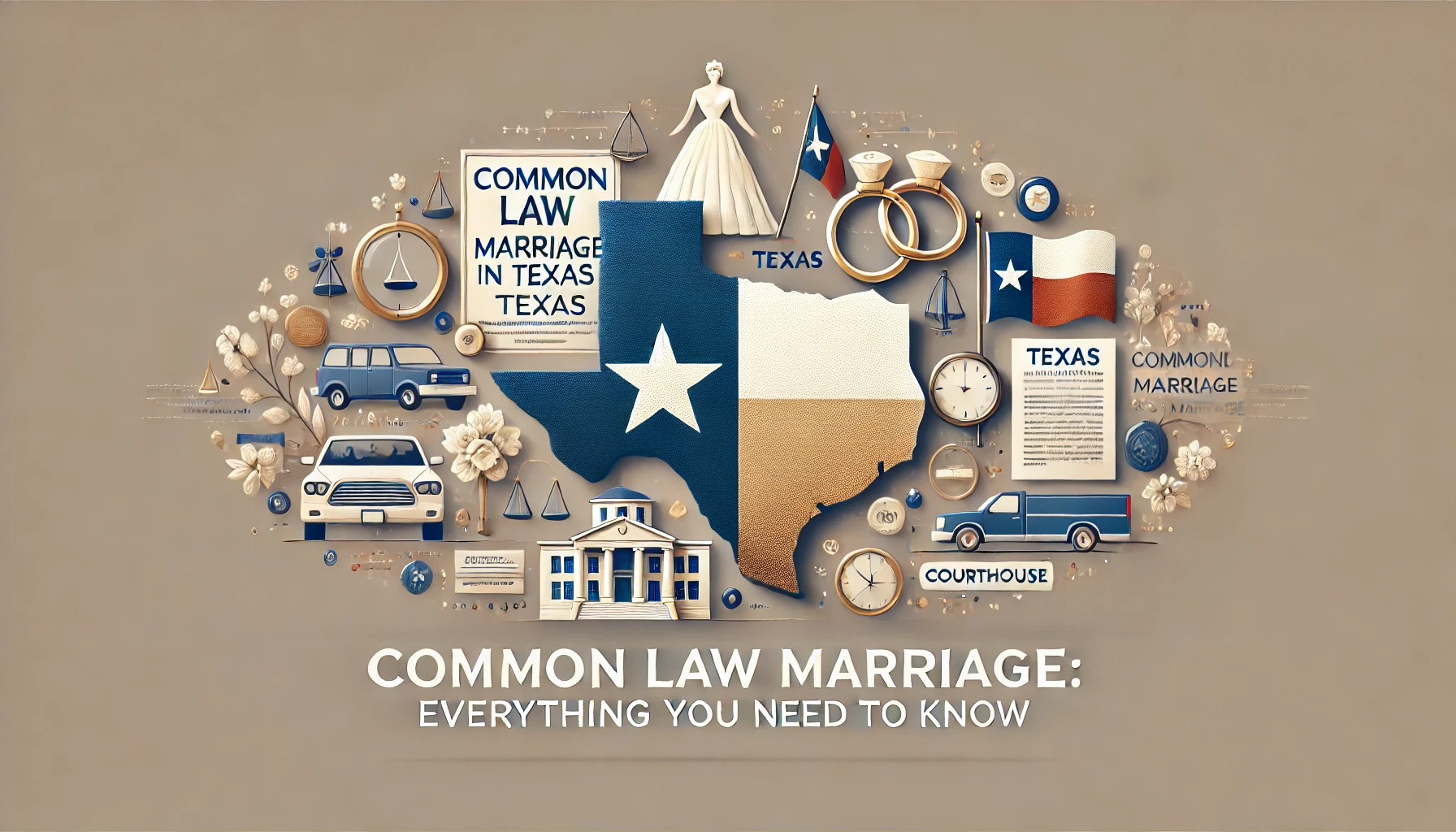Common law marriage, also known as an informal marriage, is a legally recognized marital arrangement that doesn’t require a formal ceremony or marriage license. In Texas, common law marriage is a valid and binding legal union under certain conditions. This article provides a comprehensive overview of common law marriage in Texas, including its requirements, legal implications, and how it can be dissolved.
What Is Common Law Marriage in Texas?
Common law marriage in Texas allows a couple to be considered legally married without having gone through a formal wedding ceremony or obtained a marriage license. This type of marriage is governed by Chapter 2 of the Texas Family Code.
Requirements for Common Law Marriage in Texas
For a common law marriage to be recognized in Texas, the couple must meet the following three criteria:
- Agreement to Be Married: Both parties must mutually agree to be married. This agreement can be verbal but must be evident through their actions and intentions.
- Cohabitation: The couple must live together in Texas as husband and wife.
- Representation to Others: The couple must present themselves to others as being married. This could include introducing each other as spouses, filing joint tax returns, or using the same last name.
It is important to note that all three conditions must be met simultaneously for a common law marriage to be legally valid.
Common Myths About Common Law Marriage
- Length of Cohabitation: There is no specific time requirement for how long a couple must live together to establish a common law marriage.
- Children Together: Having children together does not automatically create a common law marriage.
Legal Recognition and Declaration
Couples can formalize their common law marriage by filing a “Declaration of Informal Marriage” with the county clerk. This serves as official documentation and can simplify legal proceedings in the future.
Rights and Responsibilities in a Common Law Marriage
Once a common law marriage is established, the couple has the same legal rights and responsibilities as a couple in a formal marriage. This includes:
- Community property rights
- Rights to spousal support (in certain circumstances)
- Obligations related to child custody and support
How to Prove a Common Law Marriage
In disputes, proving a common law marriage often requires presenting evidence such as:
- Joint financial accounts or property
- Documentation showing the same address
- Witness testimony affirming the couple’s representation as spouses
Dissolving a Common Law Marriage in Texas
If a couple decides to separate, a common law marriage must be dissolved through the same legal divorce process as a formal marriage. This involves dividing community property, addressing custody issues, and other standard legal procedures.
Statute of Limitations
Texas imposes a statute of limitations for asserting a common law marriage. If a couple separates, they have two years to file for divorce or prove the existence of a common law marriage. Failure to do so may result in the marriage not being legally recognized.
Benefits and Challenges
Benefits:
- Avoiding wedding expenses
- Flexibility in defining the relationship
Challenges:
- Proving the existence of the marriage in legal disputes
- Navigating complex property and custody issues
FAQs About Common Law Marriage in Texas
- What is the minimum time required to establish a common law marriage in Texas? There is no minimum time requirement for cohabitation. What matters is meeting all the legal criteria simultaneously.
- Can a common law marriage be recognized in another state? Yes, if the common law marriage was validly established in Texas, it is generally recognized in states that acknowledge common law marriages.
- Do we need to register our common law marriage? Registration is not mandatory but filing a “Declaration of Informal Marriage” can serve as formal proof.
- Can I get a divorce from a common law marriage? Yes, dissolving a common law marriage requires a legal divorce process similar to that of a formal marriage.
- What happens if one partner denies the common law marriage? The other partner must provide evidence, such as shared financial documents or witness testimony, to prove the existence of the marriage.
Conclusion
Common law marriage in Texas offers an alternative path to legal recognition for couples who prefer not to go through a formal ceremony. However, it’s essential to understand the legal requirements and implications to avoid potential complications. If you are considering or believe you are in a common law marriage, consulting with a family law attorney can provide clarity and protect your rights.





Leave a Reply